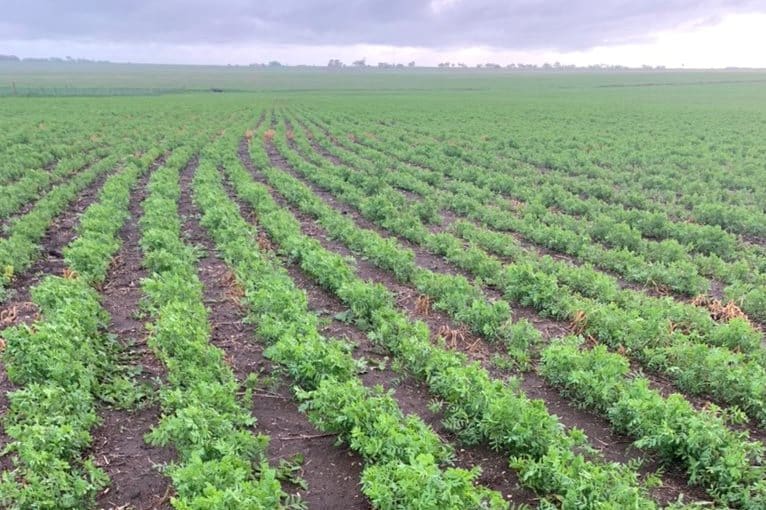
A thriving lentil crop on South Australia’s Yorke Peninsula. Photo: Quadra Australia
INDIA’S tariff on Australian and Canadian lentils is expected to drop to 10 per cent from the current 30pc once a bill before the Indian Parliament is passed this week.
“It’s great news,” Pulse Australia chief executive officer Nick Goddard said.
“There are no doubt some lentils still in the supply chain, and stored on farm, and it’s great if we can go into the next season with lower stocks.”
Mr Goddard said there was no indication as to how long the tariff reduction might last, but any length of time would be welcome.
It is expected to come into effect this week, and follows two periods last year when India’s tariff dropped to 10pc from 30pc.
“We were able to make good use of it last year, and I’m sure we’ll see the same again.
“We don’t know when this will finish, but if it goes through to December or January, we’ll be able to get some new crop away as well.”
Mr Goddard said the tariff drop represented a “great opportunity” to shift some current-crop stock ahead of what is shaping up to be another big crop.
This is in stark contrast to Canada, the world’s biggest lentil exporter, where hot and dry conditions are troubling its new-crop production outlook.
The stated reason for dropping the lentil tariff is to boost domestic supply and check rising prices.
India’s tariff on lentil imports has two components, the basic customs duty of 10pc which will be cut to zero, and a cess, or duty to fund agricultural infrastructure development, which will drop to 10pc from 20pc.
Lentils coming into India from the United States are subject to a higher customs duty, and this has been cut to 20pc from 30pc.
India receives imported lentils in bulk and containers. Mr Goddard said the difficulty Australian exporters are experiencing in the container market could well limit how much can be sent in boxes in this window of reduced tariff.
“On one hand, we’ve got this great opportunity, and on the other, we’ve got this logistics issue to deal with.”
Some Indian ports can receive bulk lentils, and these should be able to slot into schedules at South Australian and Victorian ports now that barley, canola and wheat shipping programs are slowing down in the closing months of the shipping year.
Grain Central: Get our free daily cropping news straight to your inbox – Click here

HAVE YOUR SAY